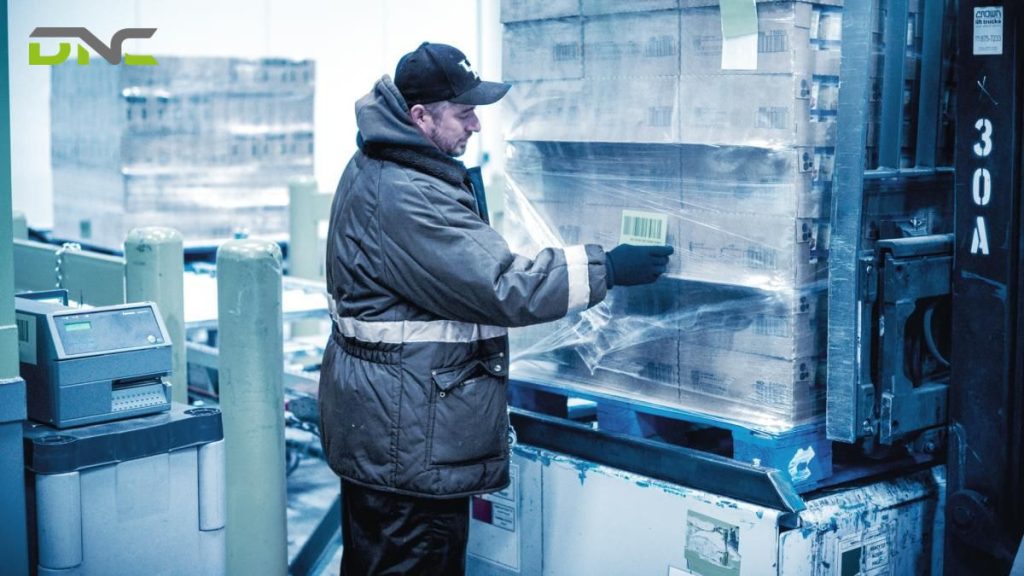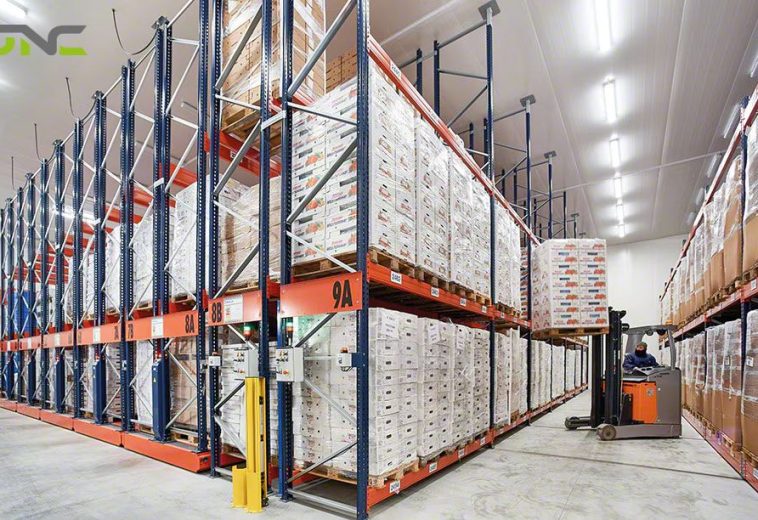What is the Frozen Warehouse? Malaysia’s Leading Storage Solution
What is the frozen warehouse? Frozen warehouse facilities are specialized storage facilities designed to store products at sub-zero temperatures, typically ranging from -18°C to -25°C (or even lower, depending on specific needs). These facilities are designed with advanced refrigeration systems, insulation technology, and real-time temperature monitoring to preserve the integrity of perishable goods.
Unlike conventional cold storage, the frozen warehouses are purpose-built for deep freezing. They are equipped to handle long-term storage of frozen goods without compromising quality, ensuring the supply chain remains intact from producer to consumer.
Why is a frozen warehouse becoming popular?

Why is a frozen warehouse becoming popular?
The popularity of cold storage today is closely linked to the trend of goods movement as well as the needs of modern consumers, based on a few key reasons:
- The growing demand for processed and frozen foods, since consumers shift towards convenience foods, has led to a significant increase in demand for ready meals, frozen vegetables, seafood, and meats.
- Strict health and safety regulations as the Ministry of Health and global bodies like the WHO, impose strict guidelines on how to handle and store perishable items. Cold storage helps businesses comply with HACCP, ISO, and GMP standards, reducing the risk of contamination and spoilage.
- Expanding industries and maintaining a stable supply chain. Cold storage ensures that these goods reach overseas markets in optimal condition.
- By minimizing food waste, businesses can optimize inventory turnover and maintain profitability even during supply chain disruptions.
How does a frozen warehouse work?

How does a frozen warehouse work?
Given its current popularity, the issue of cold storage operations is also of concern to many manufacturing plants, as it is a complex process. This process involves sophisticated systems and coordination between many factors, including.
- Temperature Zoning: Cold storage facilities are divided into multiple zones with different temperature settings. Some zones may be at -18°C for general frozen goods, while others may need to go as low as -40°C for pharmaceutical applications such as vaccines.
- High-performance insulation between walls, floors, and ceilings is built with advanced insulation materials to prevent heat loss. Polyurethane foam helps maintain stable internal temperatures even during power outages.
- Cold air flow between warehouses is evenly distributed, ensuring cold air throughout the facility, maintaining consistent freezing, and preventing hot spots that could spoil stored products.
- Loading/Unloading through cold storage, as frozen storage warehouses often use cold storage as separate loading docks where temperatures are maintained within safe limits while transferring products.
- An integrated warehouse management system (WMS) that coordinates inventory tracking, FIFO (First In, First Out) management, lot coding, and expiration date control is critical to ensuring product traceability and compliance.
Which industries need frozen warehouse applications?

Which industries need frozen warehouse applications?
Based on the operating process, Cold Storage is indispensable in many modern industries such as food, pharmaceuticals, agriculture, cosmetics, and chemicals…
- Food & Beverage (F&B): This is the main industry that uses cold storage. Seafood, poultry, frozen snacks, ice cream, dairy products, and bakery items all require strict temperature control. Cold storage allows F&B companies to manage inventory, meet seasonal demands, and reduce spoilage.
- Pharmaceuticals & Healthcare: popular products such as Vaccines, biological drugs, and some specialty drugs need to be stored at extremely low temperatures, usually from -20°C to -80°C. Cold storage is essential to maintain the effectiveness of drugs and meet regulatory requirements in medical logistics.
- Agriculture: This industry uses cold storage to preserve fresh agricultural products during peak harvest seasons, reduce waste, and support export logistics.
- Cosmetics and Chemicals: Some raw ingredients in cosmetics, as well as some industrial chemicals, break down at higher temperatures. Freezing helps stabilize these sensitive materials.
Is the cost of installing a frozen storage warehouse expensive?
Are automated frozen warehouse systems expensive or cheap? This is a tough question because the cost of setting up a cold storage facility depends on many factors. Certainly, this investment often brings operational efficiency and product integrity.
Factors that affect the cost of installing a cold storage system include:
- Refrigeration system installation: Industrial freezers and backup systems are a bit expensive at the beginning, but are essential components.
- Insulation: High-performance panels and sealing systems are needed to prevent heat leakage to other cold areas.
- Temperature control and monitoring technology: IoT sensors, software, and automation tools increase the upfront cost but reduce long-term risk.
- Backup power: Generators and UPS systems are necessary to prevent temperature fluctuations during power outages.
Compared to the current market, the price of a cold storage system will range from 200,000 USD for small systems and from 500,000 USD for larger systems.
What are the important criteria to consider when choosing a frozen warehouse?
To ensure the selection of a frozen warehouse system that operates stably for a long time, users need to consider the following issues to ensure the equipment operates safely and efficiently.
- Temperature accuracy and stability: Ensure the facility can maintain the specific temperature range required for your product, without frequent fluctuations.
- Compliance and certification: HACCP, ISO 22000, or other relevant certifications. These indicate compliance with international food and pharmaceutical safety standards.
- Location and accessibility: A strategically located warehouse will reduce transportation time and logistics costs. Proximity to ports, highways, and distribution centers is a big advantage.
- Technology integration: A good cold storage should support RFID, barcode scanning, and real-time inventory tracking through WMS or ERP integration for easy tracking of daily incoming and outgoing goods.
- Security and backup systems: From access control to CCTV and backup generators, security and reliability are critical in protecting valuable inventory.
Why should you choose a frozen warehouse system at DNC Automation?
If you’re unsure where to purchase a high-quality frozen warehouse system, DNC Automation is a trusted choice. With over 15 years of experience, DNC has earned the confidence of numerous clients by delivering reliable automation and cold storage solutions across various industries.
As one of Malaysia’s leading companies in automation, engineering, and industrial technology, DNC specializes in:
- Custom-designed cold storage and frozen warehouse systems
- System integration for automated warehouse and logistics operations
- Industrial Internet of Things (IIoT) and Industry 4.0 solutions
- Advanced control systems, including temperature monitoring and WinCC SCADA integration
DNC offers a wide range of frozen warehouse designs with different storage capacities and configurations to meet the needs of both local and international businesses. All systems are 100% genuine and engineered in Malaysia, ensuring high performance, energy efficiency, and long-term durability in extremely low-temperature environments.
- 58 views
- 0 Comment




Recent Comments